Thai Coconut Curry Shrimp with Rice Noodles is a traditional Thai dish that usually consists of fresh shrimp, coconut milk, curry paste and rice vermicelli stir-fried in a wok. The dish usually has a strong curry flavor and the coconut milk gives it a rich creamy flavor and texture. The freshness of the shrimp complements the softness of the rice noodles, adding richness to the dish. Thai Coconut Milk Curry Shrimp with Rice Noodles is usually served with fresh spices and vegetables, giving it a distinctly Thai flavor, making it a delicious and exotic dish, and, since rice noodles are gluten-free, it is also suitable for those on a gluten-free diet!

What are the Benefits of Thai Coconut Curry with Shrimp and Rice Noodles?
Thai Coconut Curry Shrimp with Rice Noodles has become a much-loved dish for its unique flavor and rich nutrition. From a health and nutritional perspective, this dish has many benefits. First of all, the ingredients used are healthy choices in their own right. Coconut milk provides healthy fats and is rich in vitamins, while shrimp is rich in protein and micronutrients, and rice noodles are a low-fat, gluten-free option. This combination makes this dish a nutritionally balanced choice. Secondly, this dish is rich in nutrients such as vitamin E and minerals from the coconut milk, protein, zinc and selenium from the shrimp, as well as carbohydrates and a small amount of protein provided by the rice flour. Lastly, choosing the right cookware is also crucial. Cooking Thai Coconut Curry Shrimp with Rice Noodles usually involves using a wok or stock pot to cook the curry paste and shrimp, as well as cooking the rice noodles. Choosing a good quality non-stick pan will reduce the use of cooking oil and maintain the original flavor of the ingredients, thus better retaining the nutritional value of the food.

Welcome To My Kitchen! Let’s Make Thai Coconut Curry with Shrimp and Rice Noodles!
Step 1: Prepare Rice Noodles
- Cook the rice noodles according to the package instructions until al dente.
- Drain the noodles and rinse them under cold water to prevent sticking. Set aside.

Step 2: Make Coconut Curry
- Heat coconut oil in a large skillet or wok over medium heat.
- Add minced garlic and grated ginger. Sauté for 1-2 minutes until fragrant.
- Stir in red curry paste and cook for another minute.
- Pour in the coconut milk and stir until the curry paste is fully incorporated.
- Add sliced bell peppers and onion to the curry sauce. Cook for 5 minutes until the vegetables are slightly softened.
- Season the curry with gluten-free soy sauce, brown sugar, lime juice, salt, and pepper. Stir well.
- Gently add the shrimp to the curry sauce and cook for 3-4 minutes until they turn pink and opaque.

Step 3: Combine with Rice Noodles
- Once the shrimp are cooked, add the cooked rice noodles to the skillet.
- Toss everything together until the noodles are well coated with the coconut curry sauce.
- Adjust seasoning according to taste.

Step 4: Serve
- Divide the Thai coconut curry with shrimp and rice noodles into serving bowls.
- Garnish with fresh cilantro leaves and serve with lime wedges on the side.
- Enjoy your gluten-free Thai feast!

Not only is this Thai Coconut Curry Shrimp with Rice Noodles rich in flavor and suitable for those on a gluten-free diet, it’s a delicious and healthy choice. Its strong Thai flavors and the sweetness of coconut milk make it a favorite dish for many. Whether it’s a family dinner or a special occasion, this dish offers an exotic and wonderful experience.
Print
Thai Coconut Curry with Shrimp and Rice Noodles
- Total Time: 40 minutes
- Yield: 4 Servings 1x
- Diet: Gluten Free
Description
Thai Coconut Curry Shrimp with Rice Noodles is rich and aromatic, a delicious dish full of Thai flavors.
Ingredients
- 8 oz rice noodles (gluten-free)
- 1 lb medium-sized shrimp, peeled and deveined
- 1 can (14 oz) coconut milk
- 2 tablespoons red curry paste (ensure it’s gluten-free)
- 2 tablespoons coconut oil
- 1 red bell pepper, thinly sliced
- 1 yellow bell pepper, thinly sliced
- 1 onion, thinly sliced
- 2 cloves garlic, minced
- 1 tablespoon fresh ginger, grated
- 2 tablespoons gluten-free soy sauce or tamari
- 1 tablespoon brown sugar or coconut sugar
- Juice of 1 lime
- Salt and pepper to taste
- Fresh cilantro leaves for garnish
- Lime wedges for serving
Instructions
Step 1: Prepare Rice Noodles
- Cook the rice noodles according to the package instructions until al dente.
- Drain the noodles and rinse them under cold water to prevent sticking. Set aside.
Step 2: Make Coconut Curry
- Heat coconut oil in a large skillet or wok over medium heat.
- Add minced garlic and grated ginger. Sauté for 1-2 minutes until fragrant.
- Stir in red curry paste and cook for another minute.
- Pour in the coconut milk and stir until the curry paste is fully incorporated.
- Add sliced bell peppers and onion to the curry sauce. Cook for 5 minutes until the vegetables are slightly softened.
- Season the curry with gluten-free soy sauce, brown sugar, lime juice, salt, and pepper. Stir well.
- Gently add the shrimp to the curry sauce and cook for 3-4 minutes until they turn pink and opaque.
Step 3: Combine with Rice Noodles
- Once the shrimp are cooked, add the cooked rice noodles to the skillet.
- Toss everything together until the noodles are well coated with the coconut curry sauce.
- Adjust seasoning according to taste.
Step 4: Serve
- Divide the Thai coconut curry with shrimp and rice noodles into serving bowls.
- Garnish with fresh cilantro leaves and serve with lime wedges on the side.
- Enjoy your gluten-free Thai feast!
Equipment
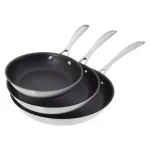
American Kitchen 3-piece Premium Nonstick Skillet
Buy Now →
Calphalon Kitchen Knife Set with Self-Sharpening Block
Buy Now →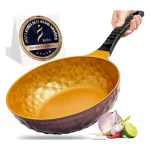
Diamond X Premium Extreme Non Stick 11″ Frying Wok Pan Hybrid
Buy Now →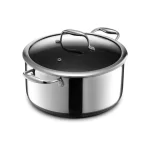
HexClad Hybrid Nonstick 8-Quart Stockpot with Tempered Glass Lid
Buy Now →
Lenox French Perle Scallop 4-Piece Bowl Set
Buy Now → Buy Now →
Buy Now → Notes
- Adjust the spiciness of the curry by adding more or less red curry paste according to your preference.
- For extra heat, add sliced Thai chilies or chili flakes to the curry.
- Feel free to add your favorite vegetables such as spinach, broccoli, or carrots to enhance the nutritional value of the dish.
- Prep Time: 15 minutes
- Cook Time: 25 minutes
- Category: Special Diets
-
How should I cook shrimp to make sure they stay juicy?
For juicy shrimps, you can choose a quick cooking method such as stir-frying or boiling. Don't overcook shrimp, usually just cook them for 2-3 minutes until they are browned and fully cooked. Overcooking will cause the shrimp to become sticky and dry
-
How should I flavor Thai Coconut Milk Curry with Rice Noodles to ensure that they are rich in flavor but not overly spicy?
To flavor your Thai Coconut Milk Curry, you can gradually add red curry paste, coconut milk, fish sauce, lemon juice and sugar. Try adding these ingredients gradually while experimenting with the flavors until you achieve the desired balance of flavors. This will ensure that the flavors are rich but not overly spicy.
-
When cooking rice noodles, what should I do to make sure they don't become mushy?
When cooking rice vermicelli, first make sure there is enough water so that the rice vermicelli can boil freely in plenty of water. Immediately after cooking, rinse the rice vermicelli with cold water as this will help to stop the rice vermicelli from continuing to cook and reduce its stickiness. Alternatively, you can soak the rice noodles in warm water before cooking, which helps to reduce the cooking time and reduces stickiness.

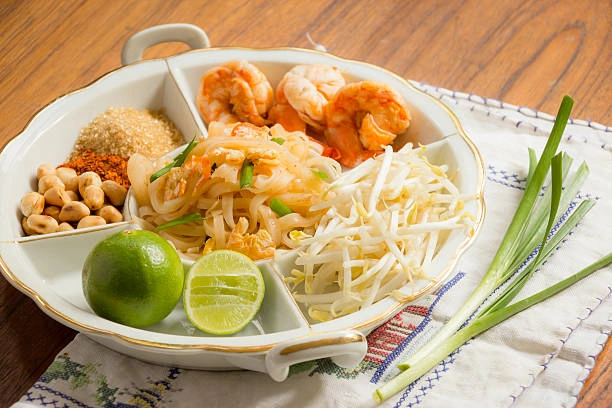


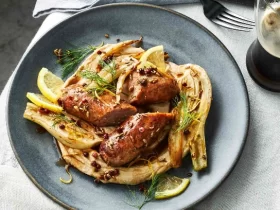
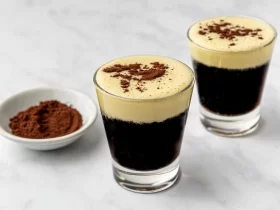
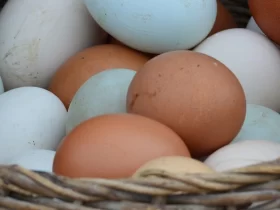

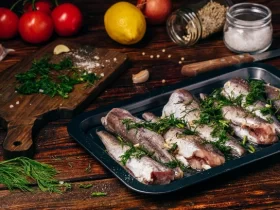
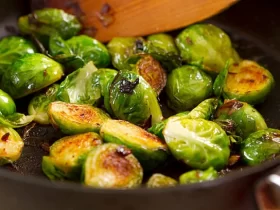

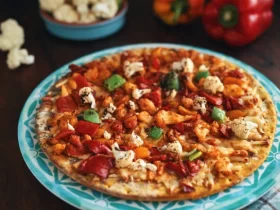


Leave a Reply